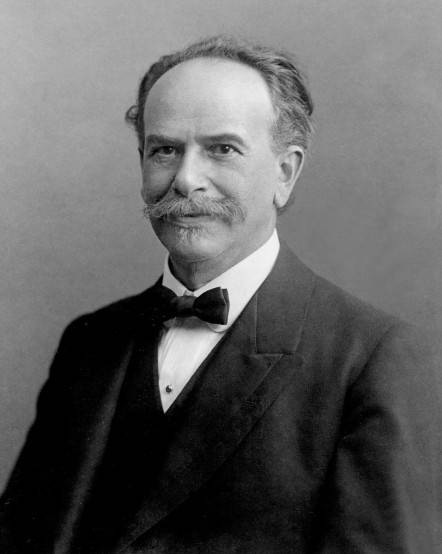
FAQ About Franz Boas

Who was Franz Boas?
Franz Boas was a German-born anthropologist who is often regarded as the father of American anthropology. Born on July 9, 1858, Boas revolutionized the study of anthropology with his emphasis on cultural relativism and his rejection of racial determinism. His work laid the foundation for modern anthropology and influenced the social sciences broadly.

What is Franz Boas known for in anthropology?
Franz Boas is best known for developing the concept of cultural relativism, which promotes understanding cultures based on their own contexts rather than comparing them to a Western standard. He also strongly opposed the racial hierarchy theories of his time, arguing that no race was superior to another. Boas's emphasis on fieldwork and empirical evidence also helped to establish anthropology as a rigorous scientific discipline.

What is cultural relativism, according to Franz Boas?
Cultural relativism, as developed by Franz Boas, is the idea that an individual's beliefs and activities should be understood by others in terms of that individual's own culture. This concept was groundbreaking because it urged anthropologists to refrain from ethnocentric judgments and to study cultures without bias, promoting an understanding that no culture is innately superior to another.

How did Franz Boas impact the study of anthropology?
Franz Boas profoundly impacted anthropology by introducing rigorous fieldwork methods and emphasizing the importance of cultural context. He trained a generation of anthropologists and developed theories that challenged the prevailing ideas of racial superiority and deterministic beliefs. His approaches encouraged anthropologists to gather detailed empirical evidence and view cultural practices through an objective, non-judgmental lens.

What was Franz Boas's stance on race?
Franz Boas was a strong opponent of the concept of racial determinism. He argued that race is not a determinant of cultural or personal achievement and that human variation is shaped by culture and environment rather than biological factors. His work played a crucial role in debunking theories of racial superiority and hierarchy prevalent in the early 20th century.

Where did Franz Boas work during his career?
Franz Boas spent much of his career in the United States and was notably associated with Columbia University, where he taught for over four decades (from 1899 to 1942). Additionally, Boas conducted significant fieldwork in the Arctic with Inuit communities and in the Pacific Northwest with Indigenous tribes such as the Kwakiutl (Kwakwaka'wakw).

Who were some of Franz Boas's most famous students?
Franz Boas mentored several influential anthropologists who became prominent figures in their own right, including Margaret Mead, Ruth Benedict, Edward Sapir, and Zora Neale Hurston. These students extended Boas's teachings and philosophies into various areas of anthropology and social science.

What are some key works published by Franz Boas?
Some key works by Franz Boas include "The Mind of Primitive Man" (1911), in which he challenged racial notions by emphasizing the impact of environment over biological determinism, and "Race, Language, and Culture" (1940), a collection of essays discussing his views on culture and race. His book "Primitive Art" (1927) also remains influential in the study of art as a cultural expression.

How did Franz Boas's upbringing influence his work?
Franz Boas grew up in a liberal Jewish family in Germany, which encouraged intellectual pursuits and a respect for different cultures. This background nurtured his curiosity about cultural differences and informed his later teachings about cultural relativism. Boas's liberal upbringing inspired him to challenge societal norms and focus on anti-racist and egalitarian views.

What field methods did Franz Boas advocate for in anthropology?
Franz Boas advocated for rigorous fieldwork methods, including participant observation and the collection of detailed ethnographic data. He emphasized the importance of living within the communities being studied and learning their languages to understand their cultures accurately and empathically. This hands-on approach was revolutionary at the time and solidified anthropology as a scientific discipline.

How did Franz Boas challenge the scientific community of his time?
Franz Boas challenged the scientific community by arguing against the prevailing racial hierarchy theories and deterministic views of culture. He advocated for cultural relativism and presented substantial empirical data to support his theories. Boas's insistence on scientific rigor and fieldwork helped to shift anthropology away from speculative theories toward a more evidence-based approach.

What was Franz Boas's influence on cultural anthropology?
Franz Boas is considered a foundational figure in cultural anthropology due to his development of cultural relativism and his empirical approach to studying cultures. He revolutionized the field by focusing on cultural diversity and advocating for an understanding of societies based on their unique contexts, which fundamentally shaped the way anthropologists conducted and interpreted their research.

Did Franz Boas publish any works on the art of indigenous peoples?
Yes, Franz Boas published significant works on the art of indigenous peoples, including his book "Primitive Art" (1927). In this work, Boas analyzed the role of art in the cultural framework of indigenous societies and examined how art forms express and embody cultural values. His work highlighted the complexity and significance of indigenous art well before his contemporaries.

What is the significance of Franz Boas's book "The Mind of Primitive Man"?
"The Mind of Primitive Man" is a seminal work by Franz Boas in which he argued against racial determinism and supported cultural relativism. Published in 1911, the book challenged the notion that there was a biological basis for intellectual and cultural differences between races, instead emphasizing environmental and cultural factors. This book helped establish Boas as a leading figure in anthropology and a staunch advocate of equality across cultures.

How did Franz Boas contribute to linguistic anthropology?
Franz Boas made significant contributions to linguistic anthropology by studying the relationship between language, thought, and culture. He emphasized the importance of understanding linguistic nuances and how language affects cultural practices. Boas encouraged his students to document languages as an integral part of ethnographic fieldwork, thus advancing the field of linguistic anthropology.

How did Franz Boas influence the training of anthropologists?
Franz Boas influenced the training of anthropologists through his emphasis on rigorous fieldwork, methodological scientific principles, and a holistic approach to studying cultures. He trained numerous influential anthropologists at Columbia University, embedding in them the value of empirical research, participant observation, and cultural empathy. His approach established a lasting framework for anthropological training and practice.

Was Franz Boas involved in any controversies during his career?
Franz Boas faced controversy when he publicly accused certain anthropologists of using their research as a guise for espionage during World War I. This led to tension within the anthropological community and resulted in his temporary expulsion from the American Anthropological Association’s executive committee. Despite this, he remained a prominent figure, advocating for ethical standards in research.

How did Franz Boas's work influence cultural identity studies?
Franz Boas's work laid the groundwork for cultural identity studies through his emphasis on cultural relativism and the understanding of identity within cultural contexts. His rejection of reductionist racial theories allowed for a more nuanced exploration of cultural identity as a dynamic interplay of environmental, linguistic, and cultural factors, influencing how identity is studied in social sciences today.

What impact did Franz Boas have outside of anthropology?
Franz Boas's impact extended beyond anthropology into broader social justice movements. His anti-racist teachings and cultural relativism influenced numerous public intellectuals and civil rights activists. By challenging established racial hierarchies, Boas helped shift public perspectives towards more equitable views, laying a foundational influence on race relations and cultural understanding in society.
